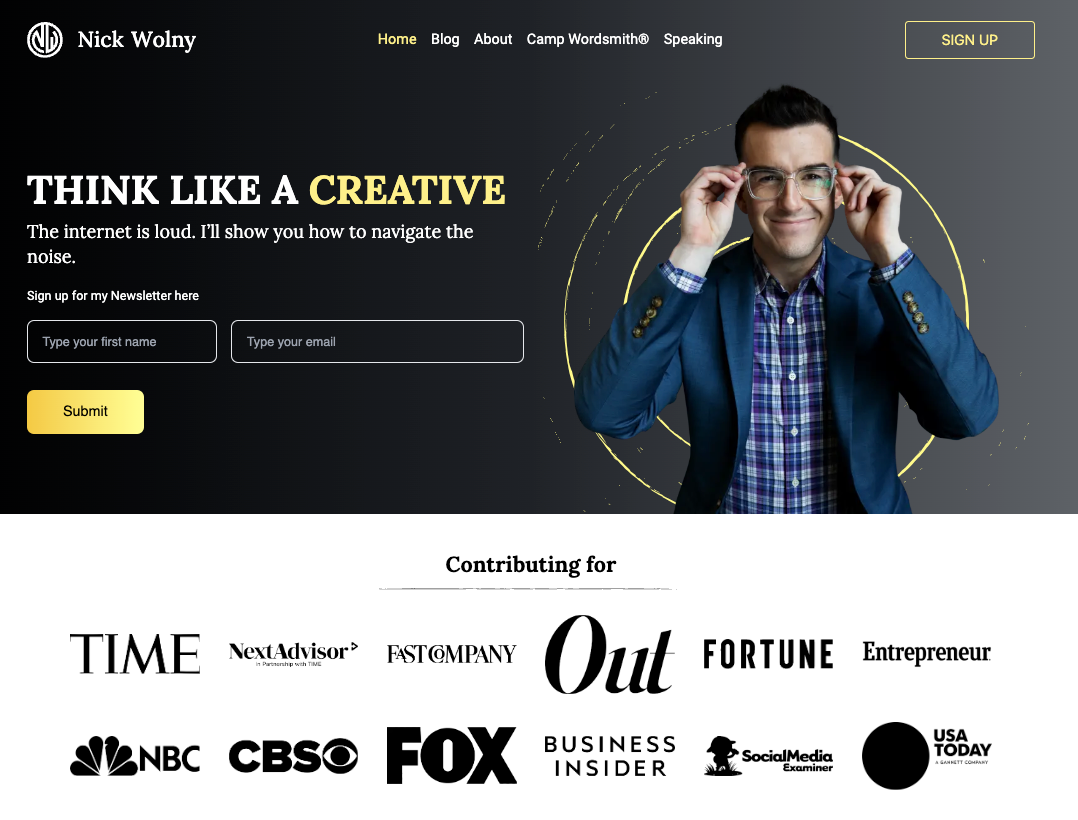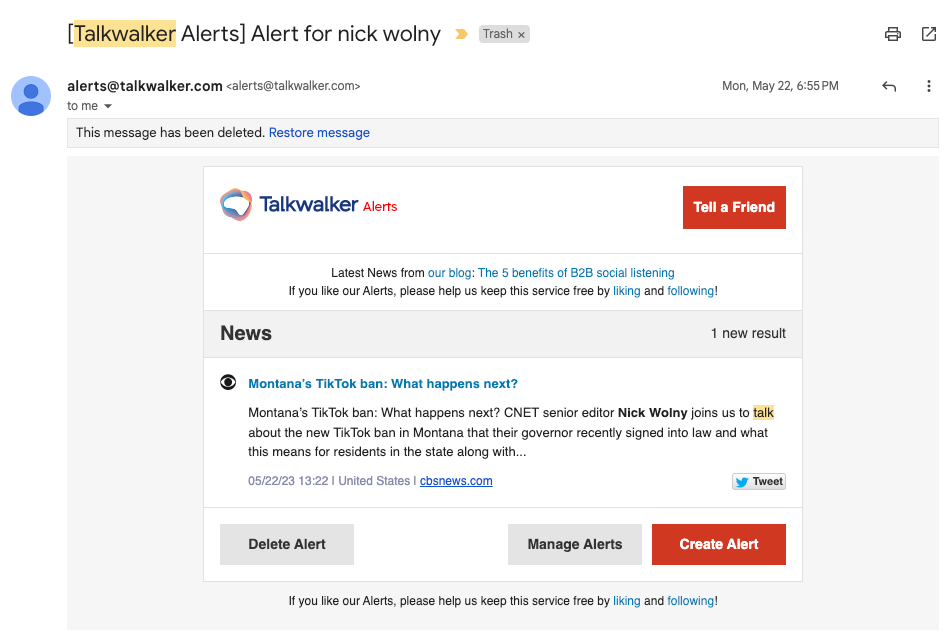Marketing fads come and go, but earned media never goes out of style.
Earned media refers to people or organizations featuring you and/or your business. Earned media can include testimonials, online reviews, and posts being shared. But one form of earned media continues to be especially powerful: PR.
When your brand gets featured in household-name publications, you appear more credible and trustworthy. And when you get featured or interviewed by industry experts and leading companies, you give yourself an opportunity to be endorsed, directly in front of your exact target audience.
The pursuit of additional positive earned media—and messaging to mitigate negative press—is known as public relations, or PR. If you want to explore getting press for yourself, here’s what to know.
Table of Contents
What Do Public Relations and Media Relations Really Mean?
Public relations gets confusing because it can mean different things to different people.
For some key stakeholders, PR might refer to writing press releases. For others, It’s more about social media marketing. And for others still, an entire public relations team might be dedicated to crisis management, PR campaigns, working with government officials, or spearheading investor relations.
Generally, PR is about proactively communicating with editors, producers, marketing managers, or journalists to attract more media attention. For larger companies that are already in the news all the time, it might be more about managing a business’s reputation, ensuring that media outlets have the most up-to-date information about personnel, financial reports, or product features.
Why Media Coverage Is Valuable
News outlets have spent years, decades, or even centuries developing their reputation. Since they attract large and/or engaged viewerships, many media companies often have huge amounts of website traffic.
These outlets have limited space. Not everyone can have a feature in a magazine, be on TV, or be the guest on a podcast episode. As such, being featured is considered notable, and can help buoy a company’s reputation.

Media can often lead to more media. This national TV spot I did came about as a result of a guest post I wrote for FORTUNE... eight months prior.
The Long Game of Media Credibility
Many people think the most valuable attribute of getting featured in press is the number of users who will see you. This isn’t true. Traffic from media hits can be very volatile, and this isn’t a metric you can control.
What is valuable, however, is to show future followers and subscribers who’ve just discovered you your past work. One of the best ways to do this is with a “media banner.” You’ve seen these banners before; these are the “as seen in” logos you see on websites, or the “So-and-so has written for…” sentences in someone’s bio.
Is it name-dropping? Technically, yes. But you don’t get a second chance to make a first impression. If you’ve landed these credibility markers, you should flex them early on in the user journey to establish yourself as a trustworthy source.

A screenshot of my website's home page. Some of these logos are from placements I earned several years ago, but they still project credibility.
10 Ways to Land More PR In Business Efforts
No. 1: Nourish Mutually Beneficial Relationships
PR tactics don’t have to be complicated. Sometimes, developing win/win relationships with others in your network is more than enough to get things up and running.
You never know when a valuable referral opportunity might arise. Last year, a relationship I built with an LGBTQ+ advertising community created an opportunity to write about a forthcoming survey. I got to debut that data in an article for FORTUNE magazine, and that article later led to being called for two national television interviews.
Be in the business of relationships and you’ll see more media and partnership opportunities come your way.
No. 2: Explore Doing Speaking Engagements
A speaking engagement or webinar might be for a small room of attendees, but it’s still a great way to work on your public speaking skills. Moreover, guest speaking opportunities position you as an expert.
Since speaking commitments often give you time to expand on who you are and what you do, they can be an excellent way to expand your network. Speaking also generally builds mutually beneficial relationships.
If you have a speaking opportunity, see if you can get it filmed. This video content can be helpful when pitching media coverage in the form of live broadcast opportunities.
No. 3: Hire a Public Relations Specialist
If all this sounds like work, and you’ve got a budget, you might just want to go ahead and hire a publicist or PR agency instead. Most small businesses and individuals don’t need a publicist year-round, but you might consider hiring someone in the following situations:
- You’re launching the business and want to build buzz for opening day, whether that be offline or online.
- You’re publishing a book, documentary, or other passion project.
- Your area of expertise has become increasingly popular in mainstream media.
Publicists have their own PR tools and platforms, which can be helpful for community relations and finding the right people to pitch. However, they’re often expensive.
If your business is doing less than a million dollars a year in revenue, those marketing dollars would be better spent investing in other core areas of your marketing.
Pro Tip:Media does not replace marketing. Ensure you have your basic marketing materials dialed in first before dabbling in PR strategies.
No. 4: Build a Positive Brand Reputation
When people describe you or your business, what do you want them to say? Are you another get-rich-quick schemer? Or do you want your target audience to associate you with quality, excellence, and results?
Roll your PR strategy into existing marketing campaigns. Make your content so good that customers start talking about you to their friends or on social media.
The Instant Pot is a great example. This product did almost no marketing upon its release in 2009, but consumers loved it so much they talked about it online. Traditional media publications took notice and began covering the appliance often, leading to public relations success.
Your existing marketing and owned media assets can help power media relations efforts if you’re short on time.
No. 5: Work Past Placements Into Other Marketing Tactics
A hugely underrated strategy to leverage press hits is to incorporate them into your owned media assets.
When we say “owned media,” we’re referring to the marketing assets you own and control, with regard to messaging and distribution. Examples of owned media would be your website, your social media content, or brand videos.
If you’ve been featured in media, incorporate this “as seen in” juice into your existing assets. Consider running an ad that features your press coverage, or building up a media banner on your website.
Credibility markers like PR hits help reduce reader skepticism.
No. 6: Develop One or More Media Kits
When a journalist wants to work with you, they need information quickly. A media kit refers to a folder of key messages, headshots, brand photos, and potential videos that you can provide to press.
When owners start working with public relations managers or a PR firm, one of the first efforts will be to establish a media kit. A media kit helps with brand image, and it’s a variable you have direct control over, which is rare in media.
Go look at my media kit on my speaking page, it's linked in the first blurb. It's simple and straightforward.
Related: What Is a Media Kit, and Do I Need One?
No. 7: Learn About Social Listening Tools
Social listening tools can help you measure PR performance. Moreover, there are free tools that will help you know when your business is being mentioned online, which can help with brand management. Public relations tools will help you identify current public perception and make adjustments accordingly.
The social listening tool I recommend is Talkwalker. Go to talkwalker.com/alerts and sign up for free. Talkwalker will monitor the internet and/or social media for mentions of your name and your brand, and will send you emails either in real-time or as a daily recap when you’re mentioned.
This tool is also a nice way to keep up on certain topics in your industry without having to scour the news all day long.

How a Talkwalker alert looks in your inbox.
No. 8: Have Social Media Channels Align Around a Positive Public Image
Even if you don’t use a certain social media platform in your marketing efforts, it’s good to still establish a presence so that followers and consumers know you’re the real deal. Take some time to streamline your social media presence, and point users to the platforms where you’re most active.
No. 9: Incorporate Accolades Into Your Paid Media Efforts
Some businesses use paid marketing and advertising to find most or all of their customers. That’s totally fine.
Since advertisements are viewed as less trustworthy, many companies counter this by incorporating social proof in their ads. “The best keyboard, according to Forbes” would be powerful advertising creative, and you only need to get the media mention once to be able to leverage that credibility over and over again.
No. 10: Understand What PR Professionals Actually Do
One reason public relations professionals get a bad rap is that there’s a wide range of disciplines and ability levels in the industry. Some PR agencies focus entirely on crisis communications, whereas a PR department might be focused on drumming up awareness for various business operations or business events.
Then you have publicists, individuals who are often highly skilled in certain areas. When you hire a publicist, you’re paying for access to their rolodex and their messaging skills. A seasoned publicist has been cultivating relationships for years, and will be able to get you in front of people you’d never be able to reach on your own.
That being said, I think you can learn to do some of the initial PR outreach work yourself. It’s important to understand what actually goes into day-to-day PR efforts, so that you can properly manage someone if and when you do that down the line.
Shore Up Your Public Relations Efforts Today
Whether you want to do an all-out PR campaign, or just a strategic communication process so you can pitch as you go, learning about public relations strategy is a good use of your time.
Start pursuing more earned media today to reach more people in a quality, authoritative way. ◆
Thanks For Reading 🙏🏼
Keep up the momentum with one or more of these next steps:
📣 Share this post with your network or a friend. Sharing helps spread the word, and posts are formatted to be both easy to read and easy to curate – you'll look savvy and informed.
📲 Hang out with me on another platform. I'm active on Medium, Instagram, and LinkedIn – if you're on any of those, say hello.
📬 Sign up for my free email list. This is where my best, most exclusive and most valuable content gets published. Use any of the signup boxes on the site.
🏕 Up your writing game. Camp Wordsmith® is a content marketing strategy program for small business owners, service providers, and online professionals. Learn more here.
📊 Hire me for consulting. I provide 1-on-1 consultations through my company, Hefty Media Group. We're a certified diversity supplier with the National Gay & Lesbian Chamber of Commerce. Learn more here.


